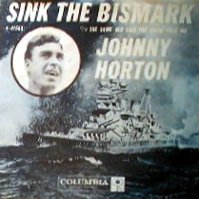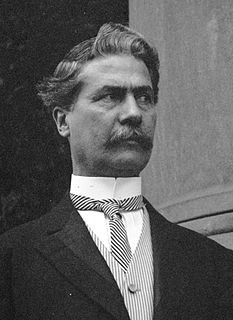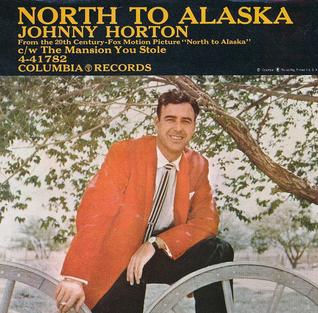Related Research Articles

Benjamin Ryan Tillman Jr. was an American politician of the Democratic Party who served as Governor of South Carolina from 1890 to 1894, and as a United States senator from 1895 until his death in 1918. A white supremacist who opposed civil rights for black Americans, Tillman led a paramilitary group of Red Shirts during South Carolina's violent 1876 election. On the floor of the U.S. Senate, he defended lynching, and frequently ridiculed black Americans in his speeches, boasting of having helped kill them during that campaign.

John LaGale Horton was an American singer and musician. Initially performing country music, Horton later performed rockabilly songs. He is best known for a series of history-inspired country songs that became international hits. His 1959 single "The Battle of New Orleans" was awarded the 1960 Grammy Award for Best Country & Western Recording. The song was awarded the Grammy Hall of Fame Award and in 2001 ranked No. 333 of the Recording Industry Association of America's "Songs of the Century". His first No. 1 country song was in 1959, "When It's Springtime in Alaska ".

The Marvelettes were an American girl group that achieved popularity in the early to mid-1960s. They consisted of schoolmates Gladys Horton, Katherine Anderson, Georgeanna Tillman, Juanita Cowart, and Georgia Dobbins, who was replaced by Wanda Young prior to the group signing their first deal. They were the first successful act of Motown Records after the Miracles and its first significantly successful female group after the release of the 1961 number-one single, "Please Mr. Postman", one of the first number-one singles recorded by an all-female vocal group and the first by a Motown recording act.

"Sink the Bismark" is a march song by country music singer Johnny Horton and songwriter Tillman Franks, based on the pursuit and eventual sinking of the German battleship Bismarck in May 1941, during World War II. Horton released this song through Columbia Records in 1960, when it reached #3 on the charts. As originally released, the record label used the common misspelling "Bismark"; this error was corrected for later releases of the song. It was inspired by the 1960 British war movie Sink the Bismarck! and was in fact commissioned from Johnny Horton by 20th Century Fox who were worried about the subject's relative obscurity in the United States. For some reason the size comparisons of guns and shells are switched. While the song was used in U.S. theater trailers for the film, it was not used in the film itself.

Coleman Livingston Blease was an American politician of the Democratic Party and perennial candidate who served as Governor of South Carolina from 1911 to 1915, and as a United States senator from 1925 to 1931. Blease was the political heir of Benjamin Tillman. He led a political revolution in South Carolina by building a political base of white textile mill workers from the state's upcountry region. He was notorious for playing on the prejudices of poor whites to gain their votes and was an unrepentant white supremacist. Ultimately, despite his political strength, Blease failed to pass any significant legislation while governor.

Charles Anthony Tillman, nicknamed Peanut, is a former American football cornerback, who is currently a United States Federal Bureau of Investigation (FBI) agent. He played college football at the University of Louisiana at Lafayette, and was drafted by the Chicago Bears in the second round of the 2003 NFL Draft.
Floyd Tillman was an American country musician who, in the 1930s and 1940s, helped create the Western swing and honky tonk genres. Tillman was inducted into the Nashville Songwriters Hall of Fame in 1970 and the Country Music Hall of Fame in 1984.
This is a list of notable events in country music that took place in the year 1944.
"Slippin' Around" is a song written and recorded by Floyd Tillman in 1949. The most popular recording was a cover version by Margaret Whiting and Jimmy Wakely which reached number one on the Retail Folk (Country) Best Sellers chart. It is a song about a person cheating on his/her spouse.

William Toliver Carlisle, better known as Bill Carlisle and Jumpin' Bill Carlisle, was an American country music singer, songwriter, comedian, and guitarist popular in the late 1940s and 1950s but who influenced the genre for more than 50 years. He is a member of the Country Music Hall of Fame.

Joshua Michael Tillman, better known by his stage name Father John Misty, is an American musician, singer, songwriter, and record producer. He has also performed and released studio albums under the name J. Tillman.
"Too Many Fish in the Sea" is a 1964 hit song recorded by Motown singing group The Marvelettes. It was the group's first top 40 pop hit in almost a year, reaching #25 on the Billboard Hot 100, and was one of the first hit singles written by Norman Whitfield; Eddie Holland also had a hand in the writing. "Too Many Fish..." was also Whitfield's first produced single.

The Way I Am is the 30th studio album by American country musician Merle Haggard, released in 1980.

Charles Davis Tillman —also known as Charlie D. Tillman, Charles Tillman, Charlie Tillman, and C. D. Tillman—was a popularizer of the gospel song. He had a knack for adopting material from eclectic sources and flowing it into the mix now known as southern gospel, becoming one of the formative influences on that genre.

Christopher Steven Tillman is an American former professional baseball pitcher. He made his Major League Baseball (MLB) debut with the Baltimore Orioles in 2009, and played with them until 2018. He was named an All-Star in 2013.

"North to Alaska" is a 1960 hit song recorded by Johnny Horton that was featured in the movie of the same name. The song was written by Horton, along with Tillman Franks. Though Horton had sung several popular movie tie-in songs, this was the first one that was sung over the opening titles. Horton died in an automobile accident 5 November 1960 shortly after the song was released. Members of the Western Writers of America chose it as one of the Top 100 Western songs of all time.

Minor Works is the first album by J. Tillman released on an official label: Fargo Records. It was completed after three limited CDr albums and a tour EP (Documented).

"I Love You So Much It Hurts" is a song written and recorded by Floyd Tillman in 1948. His version reached number 6 on the Folk Best Seller charts and spent a total of nineteen weeks on the chart.
"All These Things" is a 1962 single written by Allen Toussaint under the pseudonym of "Naomi Neville", and first recorded by Art Neville in 1962.
"Alberta" is the title of several traditional blues songs.
References
- ↑ Whitburn, Joel (2004). The Billboard Book Of Top 40 Country Hits: 1944-2006, Second edition. Record Research. p. 349.